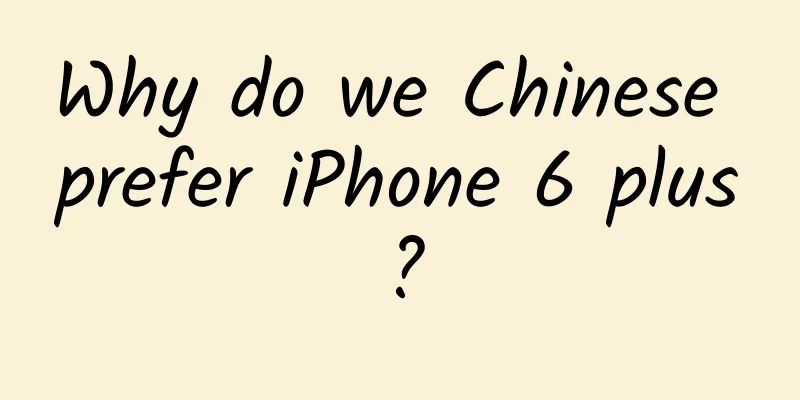Mobile medical care encounters a "registration Waterloo", exposing systemic defects and comprehensive reflection

|
A document from the Beijing Municipal Health and Family Planning Commission has been circulating online, and it seems that the government is serious about the issue of adding the number. Some people are optimistic and think this is just a stopgap measure by the government. After all, something bad happened before, and it is the annual National People's Congress, so the government has to make some gestures to explain it. Moreover, the scope of influence of Beijing's policy documents is very limited, and there are so many hospitals that are "outside the policy." In short, many people think that the business of registration and additional appointments can still be done, especially since the people still have the demand for additional appointments when seeing a doctor, and this business can definitely be very prosperous. But I think this registration incident deserves very serious reflection, and its significance actually goes far beyond the scope of whether or not to do the additional appointment business. The government and mobile medical care had their first direct "conflict" Government - Throughout the registration system reform process, we have seen that the government is the most active party. Not only is policy adjustment within the scope of the government's authority, but in the incident of public opinion about ticket scalpers, the government's interests have been most seriously damaged. Public hospitals - Although this is an action to regulate medical order, the response from public hospitals is not strong, and it is not as strong as the response from public hospitals when special outpatient clinics were cancelled. Because no matter who adds the number, the interests of public hospitals will not be greatly affected. Doctors - In comparison, doctors have a somewhat ambiguous attitude. On the one hand, doctors are fed up with scalpers and plus-number issues; on the other hand, plus-number is a rare way for doctors to control patients' visits, and even a way to realize greater personal value. Mobile medical care - Mobile medical companies have a hard time speaking out their grievances, because they are clearly working hard to solve problems for patients in need, but suddenly they have become victims of the reform policy, and are even the direct targets of this online document. But fundamentally speaking, mobile medical care is not unfair. Registration and adding appointments are not something that can change the future. The reason is very simple. Hospitals that need to add appointments are all large hospitals that rely on resource monopoly. In other words, the logic of the business of adding appointments is based on the monopoly of vested interests. This is a business without any innovation, but will increase patients' dependence on large hospitals. It is worth noting that since the second half of 2015, more and more mobile medical startups have started to engage in registration services. These companies' businesses are basically carried out around Beijing, Shanghai, and Guangzhou, and occasionally some are in cities such as Chengdu, Xi'an, Harbin, and Nanjing. Why are more and more companies starting to engage in registration services, including those that did not originally have registration services? This is actually related to the difficulties faced by mobile medical care. Medical care is actually an industry that requires a long period of cultivation, including medical service capabilities and patient reputation. The same is true for mobile medical care. As a result, mobile healthcare has not had a profit model in the past four or five years. To be more precise, it is not that there is no model, but that there is no ability. Although mobile healthcare has always claimed to be a supplement to the original medical system, from the perspective of traffic entry, the competitor of mobile healthcare is the traditional large public hospitals. How can it have a chance of winning... Therefore, just like the increasingly deserted primary medical institutions under the pressure of large hospitals, the fundamental reason why mobile medical services cannot make a profit may not be that there is no profit model, but that no one uses it. (Some people want to talk about data, haha, haha...) So why is appointment booking suddenly so popular? First, it is the only entrance to the huge traffic of all hospitals; second, the appointment service is very simple, and it is probably the only service in the medical field that can be completed with one click; third, patient demand is extremely rigid, and the trust endorsement is done by public hospitals, not mobile medical companies. It is conceivable that mobile medical companies hope to gradually build their own user base by differentiating the traffic of hospital registration. Of course, the more direct reason is that this model can generate transactions and bring in cash. Originally, this business was a win-win for patients, doctors, hospitals and registration platforms, and everything seemed to be perfect. But people overlooked that this behavior undermined the medical order under the current policy. Regardless of whether this order is reasonable or not, commercial behavior using the plus sign is contrary to policy regulations and damages the government's image and the performance of its powers. In this context, the government has always been acquiescent, tolerant and even encouraging towards mobile medical care from the perspective of encouraging innovation. However, due to differences in the registration issue, the first direct conflict between the government and mobile medical care arose. Mobile medical care has systemic flaws This conflict is enough to cause a thorough reflection on mobile medical care, not only because it is likely to have a direct impact on the business of many startups, but more importantly, it reveals the systemic flaws that currently exist in mobile medical care . Although mobile medical care appears as a disruptor, in fact, since its rise, it has always been "kneeling and licking" the attitude of various stakeholders in the medical service chain, including the government, hospitals, doctors, and even patients. Especially in terms of policies, mobile medical care has done its best. For example, solving the difficulty of seeing a doctor, controlling medical expenses, reflecting the value of doctors, and improving medical efficiency are the directions of struggle spontaneously determined by many mobile medical companies. But what is disheartening is that, so far, the government is not very receptive, including government procurement and social security payments, which have basically no inclination towards mobile medical care; the attitude of public hospitals is that it is dispensable, it doesn’t cost money anyway, and some embellishment can keep up appearances; doctors are basically in a wait-and-see state, the story of mobile medical care is too beautiful, but the reality is too thin; and patients obviously do not think highly of mobile medical care, otherwise, why would no one pay for it as a rigid need? This serious problem needs to be reflected upon: First, the development idea of mobile medical care in the past was to find pain points. The logic was that as long as the pain points could be solved, someone would naturally pay for it. Facts have proved that no one is willing to pay for it. Because mobile medical care is to change the existing medical system and innovate, but whether it is the government, public hospitals or doctors, there is actually no motivation for this. On the one hand, they are all vested interests, and on the other hand, innovation has not yet brought them greater benefits. Second, mobile medical services follow the thinking of the traditional medical service system. The traditional hospital-centered medical service system is centered on curing diseases. Whether it is hospitals or doctors, their interests are based on people getting sick. Mobile medical services, especially the plus business, follow the same logic. Translated into Mandarin, mobile medical services hope to treat people through the Internet and hope to make money by curing diseases. This is too difficult. In general, mobile medical care has always been played by a group of people who have no motivation for change or innovation, and they have been played according to a logic that is almost unsustainable in traditional fields. The result is what it is now, with no one likes it and it is occasionally bullied. Of course, a large part of mobile medical services is to provide so-called health management and chronic disease management. In general, these are not wrong. Whether from the perspective of maintaining health and reducing pain, or from the perspective of reducing medical expenses and alleviating social burdens, health management and chronic disease management are very important, necessary and needed. However, such applications have always faced seemingly insurmountable obstacles. Healthy people or those with mild symptoms will not use such products, and those who are already sick will be even less likely to use them. Moreover, if the condition is slightly more serious, mobile medical care cannot solve the problem at all. There have been two explanations for this obstacle in the past: the first is that people have a weak sense of health and lack this awareness; the second is that the medical insurance system that focuses on treatment leads to the neglect of health and prevention. The reason of lack of health awareness is obviously untenable, because if that were the case, the government would have solved the problem long ago through years of health education, and mobile medical care would not be a problem at all. Moreover, since health is a rigid need, how can there be a problem of whether awareness is strong or not? The medical insurance payment system is indeed a problem, but does it solve the problem with medical insurance payment? Not necessarily. Otherwise, the reimbursement rate of primary medical institutions is over 90%, but no one goes there. A combination of health and wealth? In summary, the problem facing mobile healthcare is how to find a partner who can innovate alongside it, and also have a reasonable mechanism that can enable this partner to actively participate and contribute money. As we have seen from the previous analysis, the registration issue has shown that the government is unlikely to become an ally of this disruptive innovation; public hospitals are vested interests in the current system and are even less likely to take the initiative to innovate themselves; and doctors do not see greater benefits from mobile medical services and are unlikely to become strong promoters. The rest are patients... Although patients have always been the core of mobile medical services, they have not received much attention in the past. This is because the logic of mobile medical services is that patients will naturally come if there are doctors and medical services. The problem with this logic is that it is the logic of traditional medicine and the logic of traditional large hospitals. Mobile medical services cannot compete with large hospitals in terms of service capabilities, and the practical effect is not good. Those initiatives that rely on entertainment to motivate users also seem to have problems. Because health management and chronic disease management go against human nature, these things require perseverance, and how can entertainment methods cultivate such perseverance? At present, the most discussed way to solve the problem of patient (user) enthusiasm is the participation of insurance. Social insurance is still difficult to rely on in the short term, and it is mainly the participation of commercial insurance companies. People expect the participation of commercial insurance companies to solve the payment problem and then include users in the entire closed-loop service system. However, there are some problems with the insurance company's routine. Since neither the insurance company nor mobile medical services have strong capabilities in health management, the introduction of insurance quickly turned into a cooperation between the two parties to sell insurance products. Selling insurance products requires relying on the insurance company's existing strong sales system, and more than ten years of practice have proved that the original health insurance products have not brought many changes except for the high prices. It is precisely because of this problem that many mobile medical companies are determined to imitate the HMO and ACO in the United States. This type of managed care has achieved some success in the United States. Without going into the details of the system, from a macro perspective, managed care has actually mobilized the enthusiasm of corporate employers. Corporate employers are willing to cooperate with insurance companies to keep their employees healthy. The effectiveness of managed care still needs to be tested in practice. Even so, we still cannot ignore the real need to mobilize users' enthusiasm for managing their personal health. From the strong promotion of medical reform and the small benefits of mobile medical care, we can see that no one has fully cooperated with them. So how can we mobilize individuals to pay attention to their own health and take the initiative to manage it? Christensen of the United States mentioned a high-deductible insurance for health savings accounts in his book "The Innovator's Prescription", which is very inspiring. The general meaning of this account is that the better the individual's health management in the early stage, the more the account balance will accumulate in the later stage. This is not only a payment system reform, but also an idea of combining personal health with personal wealth management. How to implement the idea of combining health and wealth management in China requires more discussion and research, but this idea at least reminds us that we should pay more attention to mobilizing the enthusiasm of users. For example, except for workaholics, few people like to work, but everyone still works so hard. Wealth accumulation is probably the biggest motivation. So can health management be grafted onto this huge motivation? However, there is no answer to how this idea can be applied to mobile healthcare; it is also uncertain what the practical effect will be; and when it comes to personal wealth, one must be highly wary of scammers. Therefore, more discussion is needed. |
<<: Officially abandoning the domestic market: LeWa OS will move overseas
>>: How to make users feel that your app loads quickly
Recommend
TVOS 2.0 dominates the market? See how people complain about it
In the past week, the biggest event in the televi...
How to quickly increase fans on Kuaishou? How to buy Kuaishou fans?
Professional Douyin and Kuaishou likes-boosting p...
How much does Cordyceps sinensis cost per gram?
How much does Cordyceps sinensis cost per gram? T...
How should an APP build a user growth system? Share 6 points!
Just as KOL corresponds to the herd effect in psy...
Nissan's design department changes leadership, where will future design go?
According to foreign media reports, Alfonso Albai...
Is iOS's power saving mode actually a gaming mode? An in-depth analysis gives you the answer
Maybe many Apple fans didn't pay attention to...
The official version battery life test of iOS 18 and 17.7 is here. Which one should I choose?
In the middle of this month, Apple released the o...
By mastering these points, you can also plan an event that will sweep your circle of friends!
All of you in the Internet industry should be awa...
Brand marketing promotion: the underlying logic behind Durex’s content marketing!
On April 19, the cross-border marketing cooperati...
Creative Sound BlasterX H5 Review: Wake Up Your Sleep
With the rapid development of software and hardwa...
WeChat VS TikTok: Analysis report on 4 major categories
WeChat VS TikTok: Analysis report on four major c...
36 Sales Strategies, Sales Skills That Never Go Out of Style
Mr. Bao once worked for a Fortune 500 company, st...
The iPhone is mediocre because Apple didn't put in the effort to research new patents
Apple has accelerated its layout in the field of ...
How to effectively place Internet advertisements?
Nowadays, facing more and more information impact...
How to write a promotion plan for new media operations?
Introduction: How does a new media director write...









